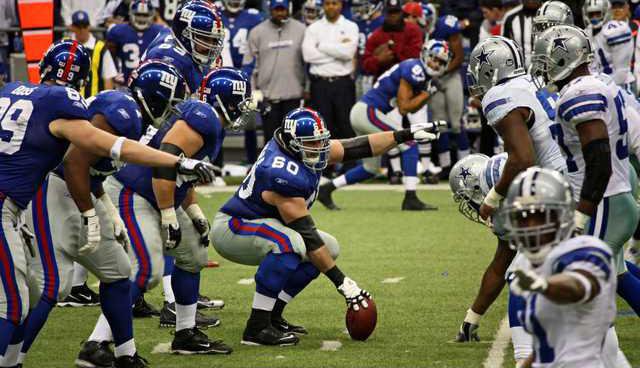Its not just the players who suffer the punishing effects of football. The people watching at home have a rough time of it, too.
At least that's what it looks like, given the number of people who phone in sick the day after the Super Bowl.
Citing a 2008 study, Time magazine estimated that more than 1.5 million workers stayed home Monday and millions more showed up to work late, not because of the bruisings they took as spectators, but because of what they consumed, which included 325 million gallons of beer and 1.3 billion chicken wings. (Peyton Manning, it appears, wasn't the only one looking forward to an evening of beer.)
Whatever the case, thats a lot of lost productivity, Alicia Adamczyk wrote for Time.
Instead of punishing the sloths, one workplace expert suggested companies should be prepared to help nurse their workers back to health without repercussion on the day after the Super Bowl.
Provide breakfast and turn the morning or even the entire day into a morale building-slash-employee-engagement-slash-get-together-slash-get-to-know-each-other-at-work day, Tim Eisenhauer, president of Axero Solutions, told Adamczyk. You could make it a day of fun and play, and bring in a comedian, a funny speaker, a musician (or) a spread of food.
Hard work, he said, is well and good, but incorporating a bit of fun can also be beneficial to your bottom line.
More bad news for employers: The office-emptying effect of the Super Bowl could last longer than a day, at least in Charlotte and Denver, The Los Angeles Times reported last week.
Reporter Deborah Netburn looked at a study in the American Journal of Health Economics that said the number of seniors who die from the flu spikes in cities whose teams went to the Super Bowl.
The researchers conclude that all those celebratory Super Bowl parties, high-fiving,and dip-sharing in the finalists' hometowns provide an easy way for flu to spread, Netburn wrote.
The Times noted previous studies showed a spike in the flu the 2002 Winter Olympics in Salt Lake City and the 2006 World Cup in Germany.
Residents of Santa Clara, California, where the Broncos stamped out the Panthers, need not worry. The Times said the Super Bowl host city did not typically see an increase in flu infections, possibly because most Super Bowls are held in warm climates where the flu is not as prevalent.
In addition, football fans who come into town solely for the game may not mix with the local population, which would keep them from transmitting the flu they might have brought with them or picked up while traveling, Netburn wrote.
People in Charlotte and Denver, however, might want to stock up on chicken soup and tissues.
"The basic thing is you get people together and they cough and sneeze on each other," Charles Stoecker, a health economist at the University of Tulane, told Netburn. "And small local gatherings are likely to be more popular in a city that has a team in the Super Bowl."
At least that's what it looks like, given the number of people who phone in sick the day after the Super Bowl.
Citing a 2008 study, Time magazine estimated that more than 1.5 million workers stayed home Monday and millions more showed up to work late, not because of the bruisings they took as spectators, but because of what they consumed, which included 325 million gallons of beer and 1.3 billion chicken wings. (Peyton Manning, it appears, wasn't the only one looking forward to an evening of beer.)
Whatever the case, thats a lot of lost productivity, Alicia Adamczyk wrote for Time.
Instead of punishing the sloths, one workplace expert suggested companies should be prepared to help nurse their workers back to health without repercussion on the day after the Super Bowl.
Provide breakfast and turn the morning or even the entire day into a morale building-slash-employee-engagement-slash-get-together-slash-get-to-know-each-other-at-work day, Tim Eisenhauer, president of Axero Solutions, told Adamczyk. You could make it a day of fun and play, and bring in a comedian, a funny speaker, a musician (or) a spread of food.
Hard work, he said, is well and good, but incorporating a bit of fun can also be beneficial to your bottom line.
More bad news for employers: The office-emptying effect of the Super Bowl could last longer than a day, at least in Charlotte and Denver, The Los Angeles Times reported last week.
Reporter Deborah Netburn looked at a study in the American Journal of Health Economics that said the number of seniors who die from the flu spikes in cities whose teams went to the Super Bowl.
The researchers conclude that all those celebratory Super Bowl parties, high-fiving,and dip-sharing in the finalists' hometowns provide an easy way for flu to spread, Netburn wrote.
The Times noted previous studies showed a spike in the flu the 2002 Winter Olympics in Salt Lake City and the 2006 World Cup in Germany.
Residents of Santa Clara, California, where the Broncos stamped out the Panthers, need not worry. The Times said the Super Bowl host city did not typically see an increase in flu infections, possibly because most Super Bowls are held in warm climates where the flu is not as prevalent.
In addition, football fans who come into town solely for the game may not mix with the local population, which would keep them from transmitting the flu they might have brought with them or picked up while traveling, Netburn wrote.
People in Charlotte and Denver, however, might want to stock up on chicken soup and tissues.
"The basic thing is you get people together and they cough and sneeze on each other," Charles Stoecker, a health economist at the University of Tulane, told Netburn. "And small local gatherings are likely to be more popular in a city that has a team in the Super Bowl."





